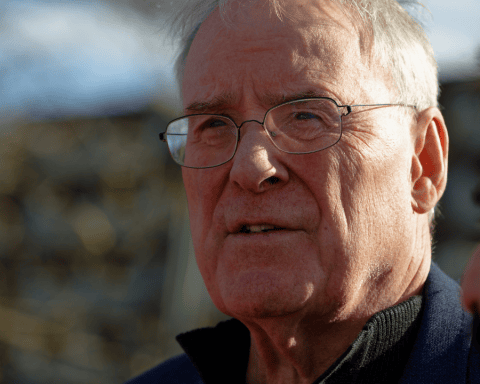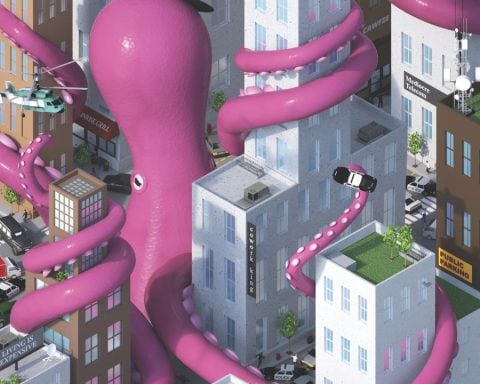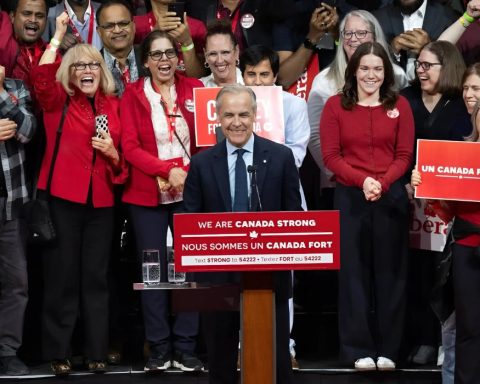Eight years ago, Pope Francis delivered a landmark encyclical — a letter to all bishops of the Roman Catholic Church — urging people to take better care of the planet. Now, he’s upped the ante with an even more forceful “apostolic exhortation” focused exclusively on the climate crisis.
The Vatican published a 10-page declaration from Pope Francis on Wednesday saying Western countries have dragged their feet on climate action and urging them to take much faster and more far-reaching steps to tamp down rising global temperatures. Responses to the climate crisis have so far “not been adequate,” the document says, “while the world in which we live is collapsing and may be nearing the breaking point.”
In his new encyclical, titled Laudate Deum, or “praise God,” Pope Francis calls for a hastened transition to renewable energy and the “abandonment of fossil fuels,” while cautioning against an overreliance on technologies like carbon capture and storage. It’s the pontiff’s first major declaration on climate and the environment since the Paris Agreement was negotiated in 2015, although he has frequently opined less formally on the urgency of climate action. In 2019, he declared a global “climate emergency,” saying a failure to act represents “a brutal act of injustice toward the poor and future generations.” He has since made calls for “radical decisions” and society-wide collaboration to address the problem.
The release of the message coincides with the start of a major gathering at the Vatican, the “Synod on Synodality,” to decide the future of the Catholic Church, including debates on the role of women in Catholic ministry, divorced people, and the LBGTQ+ community. Laudate Deum, which draws extensively from the climate science of the United Nations, received widespread praise from environmental leaders as well as leaders in the Catholic Church. “To have a global religious leader like Pope Francis putting climate action in terms of defending life is huge,“ Jessica Moerman, president of the Evangelical Environment Network, told the Associated Press.
Justin Welby, the archbishop of Canterbury, called the declaration “a word from the churches to the people of God … calling for a united humanity that will serve our suffering creation.”
“As in the Old Testament, God lays before us a choice and says, ‘Choose life,’” Welby added in a statement. “Laudate Deum chooses life.”
Described by Pope Francis as the “second part” of his previous encyclical, Laudate Deum is blunter and more critical than many of the pontiff’s previous communications. It takes specific aim at the United Nations’ annual climate conferences for failing to stem climate pollution. “Despite the many negotiations and agreements,” the encyclical says, “global emissions continue to rise.” The pope expresses guarded hope for this year’s conference, COP28, to be held in November and December, but warns that the talks could be compromised by conflicts of interest with the host country, the United Arab Emirates.
The UAE is “known as a great exporter of fossil fuels,” the pontiff writes. Despite the country’s recent investments in renewable energy technologies, “gas and oil companies are planning new projects there, with the aim of further increasing their production.”
The pope criticizes other wealthy countries for obstructing climate policy in order to protect their “national interests.” He targets overconsumption in the developed world too, noting that per-capita emissions in countries like the United States are up to seven times higher than the average in the world’s poorest countries. “A broad change in the irresponsible lifestyle connected with the Western model would have a significant long-term impact,” he writes.
He also echoes many scientists’ concerns about an undue reliance on technological solutions like carbon capture, which sucks the greenhouse gas out of the air so it can be stored in ecosystems or rock formations. “To suppose that all problems in the future will be able to be solved by new technical interventions is a form of homicidal pragmatism,” he writes, “like pushing a snowball down a hill.”
This article originally appeared in Grist at https://grist.org/culture/pope-francis-calls-for-rapid-decarbonization-abandonment-of-fossil-fuels/.
Grist is a nonprofit, independent media organization dedicated to telling stories of climate solutions and a just future. Learn more at Grist.org





